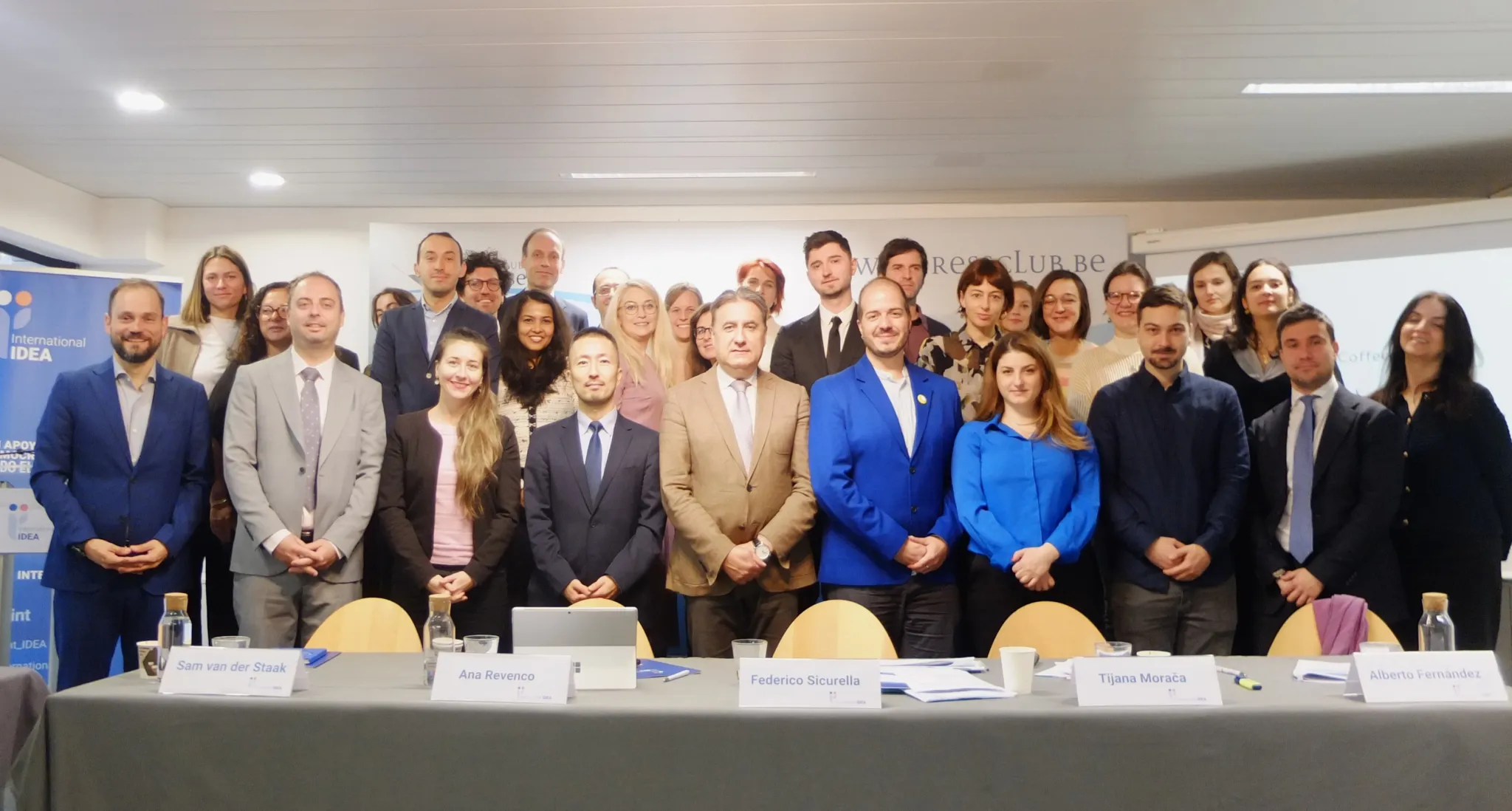Building Resilience Against Electoral Foreign Information Manipulation Interference: Experts gather to advance a global methodology

On November 5, 2024, International IDEA successfully hosted a one-day workshop in Brussels titled Designing a Global Methodology for Analyzing Electoral Foreign Information Manipulation and Interference (FIMI).
The workshop aimed to advance the development of a global methodology for analyzing electoral FIMI and brought together over 30 FIMI experts from across Europe. In addition to representatives from the European Union—including the European External Action Service (EEAS), the Directorate-General for European Neighbourhood Policy and Enlargement Negotiations (DG NEAR), and the European Parliament—the event also had in attendance representatives from the United Nations, various civil society organizations from Brussels as well as from Moldova and North Macedonia.
Photo: Ana Revenco delivering her keynote address.
In his opening remarks, Sam van der Staak, Director of the Regional Europe Programme at International IDEA, emphasized the urgent need for a robust, globally applicable methodology to address FIMI in electoral contexts. He shared insights from recent elections in Europe, specifically in Moldova, North Macedonia, and Georgia, highlighting the significant impacts of FIMI on these processes. His concerns were echoed by Ms. Ana Revenco, Head of the Center for Strategic Communication and Countering Disinformation in the Republic of Moldova. During her keynote address, she shared her country’s recent experiences with various interference tactics during elections, including financial support for local political actors, dissemination of disinformation, organizing transport for pro-Russian voters, cyber-attacks, and vote-buying—all orchestrated to disrupt the electoral process.
Photo: Sam van der Staak delivering his opening remarks.
In this context, the envisioned global methodology aims to serve as a tool for national stakeholders, especially CSOs, helping them strengthen their capacities to identify and analyze factors that make election-related FIMI possible (i.e., its enablers) and profitable (i.e., its incentives). This knowledge base is expected to support CSOs’ efforts to engage with relevant actors to develop effective policy responses. Dr. Federico Giulio Sicurella and Dr. Tijana Morača, two internationally recognized experts on the topic, are collaborating with International IDEA to draft this methodology. The development of this methodology builds on the comprehensive analysis of existing work in this field as well as International IDEA’s extensive electoral expertise in digitalization and democracy and money in politics.
Photo: Discussion with participants on the global methodology.
The workshop provided a valuable opportunity to discuss the draft methodology with participants, drawing on their varied expertise and experiences in FIMI and related fields. Following the insightful discussions and feedback, the team will continue to refine the methodology with plans to finalize it by 2025. Once completed, the methodology will be implemented in partnership with leading CSOs across project countries. The next phase will involve public advocacy activities and dialogue sessions with key stakeholders, including policymakers, social media platforms, political parties, and political finance oversight agencies.
This workshop was organized as part of the project Combating Electoral Foreign Information Manipulation and Interference, funded by Global Affairs Canada and implemented by International IDEA from 2024 to 2027. Through this project, International IDEA aims to establish actionable strategies to counter FIMI’s adverse effects on elections and bolster the resilience of democratic processes in four countries including Moldova and North Macedonia.
A short video of the workshop with reflections from experts and participants is available here.




